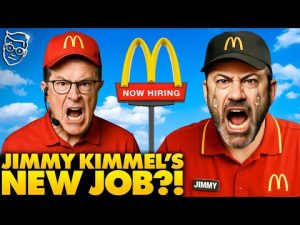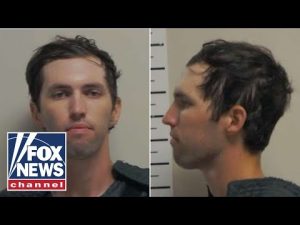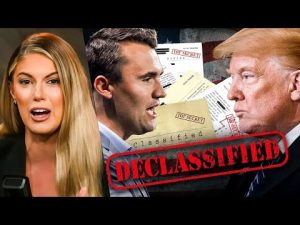President Trump is doubling down on his administration’s hardline stance against what he labels as a domestic threat to America. Antifa, a group he describes as “very, very sick,” has now been thrust into the spotlight with plans to list them as a terrorist organization. Trump promises a sweeping investigation that has everyone asking: Who funds these so-called agitators? Could it be foreign entities, secretive benefactors, or perhaps, as some suggest, infamous figures lurking in the shadows? Regardless, Trump vows to reveal the answers to these burning questions.
In a colorful exchange on a conservative news channel, the discussion centered around the nature of Antifa’s existence and the potential pockets lining their protests. While some skeptics brush off the group’s presence as imaginary, others argue the threat is all too real and cite examples of Antifa’s chaotic antics. There are calls from both sides of the aisle to not just slap labels but truly unravel the threads tying this group together. Some even suggest lumping them in with the likes of the KKK to ensure a comprehensive crackdown on domestic extremism.
As this drama unfolds, there’s a lot of speculation about who’s really pulling the strings behind the scenes. The usual suspect list includes notorious financiers and overseas conspirators. It seems Antifa’s ability to appear decked out in tactical gear and sporting the finest bail attorneys doesn’t come cheap. The narrative thickens with many questioning if the funding sources are as suspicious as they appear, and whether there’s a grand plan to destabilize America behind their actions.
Moreover, the conversation veered into how protest rhetoric has evolved. Once upon a time, lively speeches from former leaders sparked outrage and cries of violence. Yet now, the line between freedom of speech and incitement appears blurred, almost convenient in its ambiguity. Is this change genuine or just a ploy to shield destructive behavior under the guise of civil rights and free expression? Critics argue leaders should focus more on safeguarding citizens than worrying about hurt feelings.
Without substantiated leadership, organizations that thrive in chaos, like Antifa, can weave in and out of the public view. Congress is urged to channel its energy into legislation that rivals the strength of foreign terrorism sanctions. Until such a framework is built, the war against domestic terror remains patchworked and ineffective. Interestingly, despite the overwhelming need for journalistic exposure, there’s a curious lack of it, with only a few brave souls like Andy Ngo shedding light on this amorphous threat.
In the end, the question remains: As America grapples with this murky enemy within, will strong words from the top translate into tangible policy changes? Or will Antifa and similar groups evade consequence through legal loopholes and the smokescreen of protected speech? One thing is for sure, the administration’s commitment to investigating and dismantling this perceived threat underscores a broader strategy to reaffirm order amidst the chaos that threatens the nation’s social fabric.







